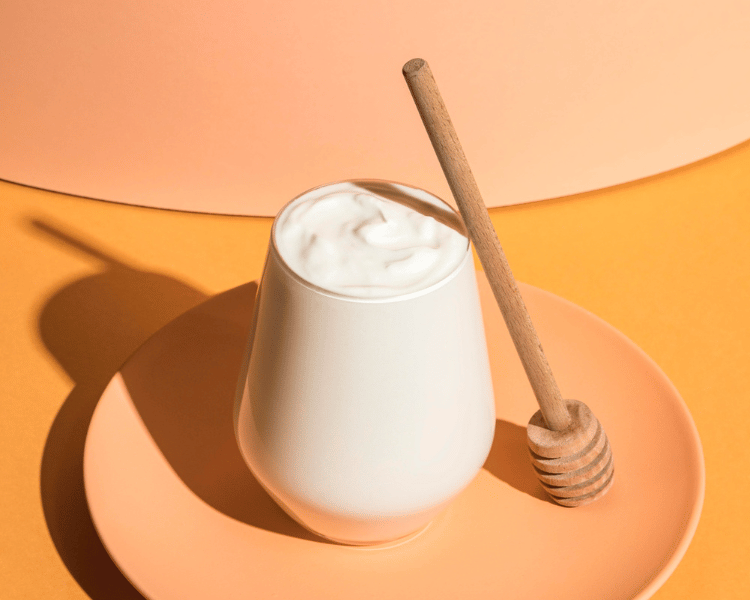Probiotics — this word has been everywhere lately, hasn’t it? From yogurt tubs to kombucha bottles, even supplement ads. But have you ever stopped and thought: what exactly are probiotics?
In simple words, they’re live microorganisms, often called “good” or “friendly” bacteria, that help keep your gut happy and balanced. They’re tiny, but they do big things for digestion, immunity, and even your overall mood. In this blog, you will learn about what probiotics really are, how they work inside your body, the strains you should know about, and why they’re worth adding to your routine.
What Are Probiotics?
Probiotics are living microorganisms, mainly bacteria and some types of yeast—that, when consumed in the right amounts, provide health benefits. Unlike harmful bacteria that can make you sick, probiotics for gut health support balance in your gut microbiome (the community of trillions of microbes living in your digestive system)

Benefits of Probiotics
Adding probiotics to your daily routine can benefit your health in surprising ways:
-
Better Digestion – They help with bloating, gas, constipation, and diarrhea. In fact, many people turn to probiotics for bloating since certain strains can ease discomfort and even help with IBS (Irritable Bowel Syndrome).
-
Stronger Immunity – Since most of your immune system lives in your gut, probiotics help your body fight off harmful bacteria and infections.
-
Support After Antibiotics – Antibiotics kill both good and bad bacteria. Probiotics help bring back the balance and reduce antibiotic-related tummy troubles.
-
Gut-Brain Connection – Studies suggest probiotics may influence mood, stress, and even sleep through the gut-brain axis.
-
Skin Health – A healthy gut can calm inflammation, which may improve acne, eczema, or other skin conditions.

Different Strains of Probiotics
Not all probiotics are the same—different strains have different jobs. A quick cheat sheet:
-
Lactobacillus – Found in yogurt and fermented foods; helps with digestion and lactose intolerance.
-
Bifidobacterium – Supports gut balance, boosts immunity, and can ease constipation.
-
Saccharomyces boulardii – A yeast probiotic that’s great for preventing diarrhea (especially traveler’s diarrhea).
-
Streptococcus thermophilus – Helps with lactose digestion and is often used in yogurt.
Sources of Probiotics
Getting probiotics into a gut health diet isn’t hard at all. Here are some places to find them:
-
Yogurt – One of the easiest and most popular probiotic foods. Look for labels that say “live and active cultures”.
-
Kefir – A tangy, fermented milk drink with multiple strains.
-
Sauerkraut & Kimchi – Fermented cabbage that’s both tasty and gut-friendly.
-
Kombucha – Fizzy fermented tea with probiotics and antioxidants.
-
Miso & Tempeh – Fermented soy foods with lots of good bacteria.
-
Pickles (fermented, not vinegar-based) – Naturally fermented ones are a hidden probiotic gem.
-
Supplements – Handy when you need specific strains or higher doses. Always check the strain, CFU count, and expiry date. For example, Soul Nutrition Probiotics lists its CFU count clearly, so you know exactly how much good bacteria you’re adding to your gut health diet.

Safety & Things to Keep in Mind
For most people, probiotics are safe. You might feel a little bloated or gassy at first, but it usually passes. If you’ve got health issues or a weak immune system, it’s best to check with your doctor first. And as always, go for trusted brands with clear labels when choosing probiotics for your gut, so you know exactly what you’re putting into your body.
Conclusion
Probiotics might be tiny, but they’re powerful. From digestion and immunity to even your mood and skin, they’ve got your back. Whether you enjoy them through yogurt and kimchi or a supplement like Soul Nutrition Probiotics, adding probiotics to your routine is such a simple way to care for your gut. They fit perfectly into a gut health diet, supporting balance in your microbiome and keeping your system running smoothly. And honestly, when your gut feels good, you feel good too.


